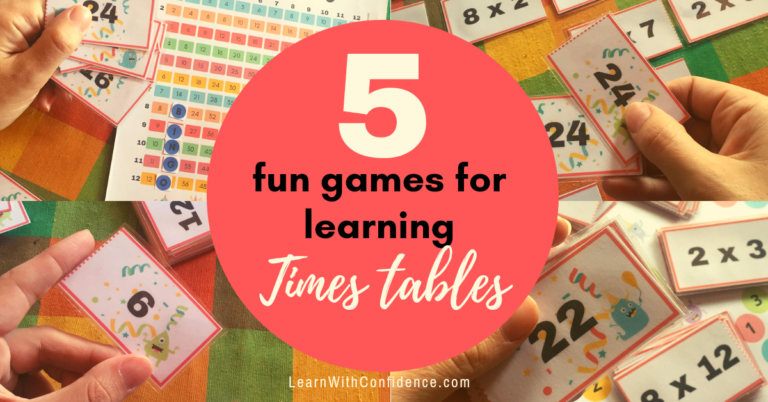How can I help my child improve their marks next year?
Let’s face it, as parents we want our children to excel to their potential! Nothing wrong with that! When it comes to school, there’s so much emphasis on marks and while those aren’t the only important indicators of our children’s progress, they are significant. So how can we help them improve their marks?
We have had one hectic year haven’t we! COVID threw us big time and our kiddos have really felt it in terms of their school year. That’s important to take into consideration as we move forward in helping them excel next year!
But first…
Something to think about first…
Here are a few things to think about regarding improving your child’s marks next year:
What’s the goal?
When you see your child’s academic performance, what do you think the goal should be? Are they not passing and need to work on passing that subject? Maybe they’re passing adequately but you know they can do a whole lot better? And maybe they’re doing really well but they have the potential to achieve top marks?
What about goals that go beyond the academic sphere? Don’t forget those.

What are your expectations?
Our kiddos expectations of themselves are often a reflection of our expectations of them!
So, what are your expectations of your child?
Is it about achieving what you did, or better than you did? Is it about earning a particular mark? Maybe it’s more about working hard and doing the best they can?
All I want to say here is, manage your expectations of your child and be mindful about what you’re communicating to him or her.
Are you ready to be committed?
Something I have noticed through my years of teaching: Where parents are committed to actually helping and being involved in their child’s education and progress, the child most often improves in leaps and bounds!
If you will commit to helping your child with these things, you will see their marks improve.
10 Tips to help your child improve their marks
So here they are! 10 ways you can help your child improve their marks going into their new school year!
1) Encourage a positive attitude towards school
When children love school, they thrive. When they believe they can’t succeed, they don’t.
Attitude is everything!
It’s not something you can force though. It’s one of those caught-but-not-taught things. So how do you get your child to “catch” a good attitude towards school so their marks can improve!?
- Create a safe, supportive space for your kids to talk to you about everything and how they feel about it! Nothing is excluded!
- Make sure they know and feel they can rely on you and have your love whether they succeed or fail.
- Help them see the silver-lining and change their negative thoughts and words into something more positive.
- Highlight the times they DO succeed so they can start combatting those lies they keep telling themselves!
2) Help your child set realistic goals
Remember these are your child’s goals – not yours.
And when you help your child set these goals, help them be realistic. What do they want to achieve in these areas this coming year?
- Academic goals
- Attitude goals
- Organisational goals
- School work and studying goals
- Lifestyle goals
Here is great resource to help you guide your child through setting these goals.
3) Meet with the teacher
Building a solid relationship with your child’s teacher is key to your child’s success.
Why?
Because you are a team!
Your child’s well-being and achievement is the priority of both their teacher and you as their parent! So you have to work together!
Make sure their teacher knows you’re on the same side and you’ll support them. Tell them what your concerns are, what your child’s goals are. Let them know that you are invested in your child’s education and seeing them reach their potential and improve their marks!
4) Establish some key routines
Good habits, routine – kids need this. They need that predictability, that security! The younger they are, the more they need it. Plus it reduces everyone’s stress and anxiety in the home – and I’m sure we could all do with that right now!
So establish some routines:
- Wake up and get ready routine
- After school routine
- Homework and studying routine
And while routine is crucial, there does need to be some flexible time too, some free time that isn’t scheduled. Try not to let their schedule become so jam-packed (even on weekends) – they need down time too!
5) Help your child get organised
What does their work space look like? Do they have EVERYTHING they need for completing their homework and studying? Do they know what tasks are due when?
Here are some things you can do to organise their school work:
- Make sure they have a designated space for their calendar, books, stationery, etc.
- Use a calendar or weekly planner (free resources), pinned up in their work space to keep track of all due dates and deadlines.
- Make sure they have all their stationery and books they need. Consider having a box of stationery just for home use for homework and studying!
- Check their books regularly to make sure their work is neat and organised.
- Check their homework diaries every day.
- Have a timetable up in their workspace to help them make sure they pack the correct books for the next day.

6) Make sure your child does their homework every day!
Don’t take it for granted when your child says “Nope, no homework today…” The point of homework is to complete, consolidate and practice. So if they do this every day and keep up to date with their work they’re more likely to improve their marks.
Here are some tips:
- Check your child’s books for incomplete work.
- Make sure you know what the school’s standard is regarding homework – what have they told you to expect homework-wise?
- Practice spelling every day.
- Practice timestables every day.
- Make time for reading every day too.
(And a note on that – these last three points don’t have to be done at a desk: Let your child spell words back to you while jumping on the trampoline. Let them practice timestables while passing a ball back and forth. Set a time for reading every day, before bedtime or in the afternoon, when everyone grabs a book and reads what they enjoy!)
Download this FREE homework planner to help your child keep on top of their work every day!
7) Don’t leave studying to the last minute!
If your child is in Grade 4, or older, he or she will likely be writing tests every week, and then exams once or twice a year. Studying often seems like an enormous task because it gets left to the last minute!
Put together a file (Use these FREE binder pages to help you!) that your child can use through the year. For every cycle test or even for each topic they cover, help your child create study notes and then store them in the file for easy reference for later tests or exams!
In Grade 4, you’re going to have to help them learn how to study, how to write study notes, how to practice for their tests. In Grade 5 – 6 you can loosen the grip on the reins slowly but surely – you’ll know how much support your child will need. By Grade 7, if a child has learnt how to study effectively, they’ll be able to do it pretty well themselves!
The more you guide and support them along the way, the more competent and independent they’ll become.
8) Practice tests
One of the most important ways to prepare for exams and improve your child’s marks is to practice answering the kind of questions they’ll be asked!
There are 3 types of questions you can expect to see in an exam
- Knowledge questions (Does your child know and remember the information?)
- Understanding questions (Does your child understand it and how it all fits together?)
- Application questions (Can your child apply and use the information and skills in different situations?)
So what does that mean?
Your child needs to study the content so they can remember it, but they ALSO need to practice answering questions so they can show they understand it and can apply it!
How can you help them do this?
Use the tests and assessments they’ve already done, use their exercises in their textbooks or worksheets. Let them re-do those activities on a piece of paper and file it in their Study File. Ask their teachers to give you some pointers about practicing too, they may even have access to some past papers you can use!
9) Keep track of your child’s progress.
Do you keep track of your child’s progress. I’m not just talking about looking at their quarterly report card.
How are they doing on their tests and assessment tasks. Is there an area they seem to be struggling with?
You see, sometimes kids just have a bad test. They just had a bad day or didn’t study and didn’t do well. But sometimes they are struggling with a key concept and when they’ve missed it, they’re building on a weak foundation. The only way to know for sure is to monitor their progress through the year.
Here’s a FREE Progress Tracker you can use to keep track of their marks for every task through the year.
And I’ve added a little something extra to it too, that will help your child monitor and reflect on their own progress more effectively too! Taking ownership of their own progress is something we really want our kiddos to be able to do! After every test, let them jot down some thoughts about what they did really well in, what they struggled with and think about what they can do to improve their marks next time!
10) Ask for help when you need it!
When you’ve tried everything and you’re still stuck or you just don’t have the time with your 9-5 or work-from-home job to sit and do homework and studying with your child. When you have tried to explain fractions for the 6-hundredth time and your child has no interest working with you!
It’s time to get some help!
Chat to the teacher and ask for advice. Get a tutor who can do what you can’t. Get some help around the house so you can spend that time with your child to support them.
And encourage your child to ask for help too! It doesn’t have to be in front of the class. But they can pop in before school, or during a break, or set up a time quickly after school, when they can ask their teacher just to explain that concept one more time!

This is daunting!
If you’re not a teacher and have no inclination towards this at all, I get it! And it’s ok! You care about your child and you want to help them succeed! (Or you wouldn’t have read all the way to the end of this post! 😉 )
So, here’s a final word.
You CAN do this! Use the tips. Use the tools. Be committed. And be positive!
Maybe you can’t do it all, but pick one or two things you can really work on to help your child and make it happen!
Here they are again – 10 ways you can help your child improve their marks:
- Encourage a positive attitude towards school.
- Help your child set realistic goals.
- Meet with the teacher.
- Establish some key routines.
- Help your child get organized.
- Make sure your child does their homework every day.
- Don’t leave studying to the last minute.
- Help your child study by practicing past tests.
- Keep track of your child’s progress.
- Ask for help when you need it!

I would love to connect with you and hear all about your how you’re coping with life and all that’s going on around us! And I’d love to include you in this community of Mommies as we support each other and grow together to become the best moms we can be!
Please subscribe to my emailing list here and I’ll make sure I keep you in the loop on all the latest blog posts, freebies and resources!









